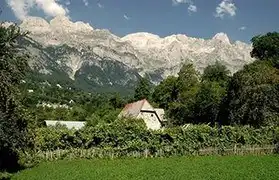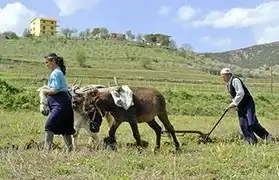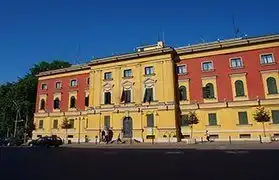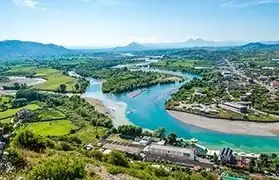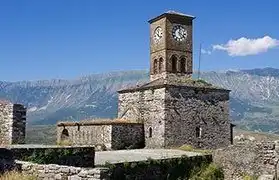Learn Albanian for free
Learn Albanian fast and easily with our language course ‘Albanian for beginners’.
![en]() English (UK)
»
English (UK)
»
![sq.png]() Shqip
Shqip
| Learn Albanian - First words | ||
|---|---|---|
| Hi! | Tungjatjeta! / Ç’kemi! | |
| Hello! | Mirёdita! | |
| How are you? | Si jeni? | |
| Good bye! | Mirupafshim! | |
| See you soon! | Shihemi pastaj! | |
What is the best way to learn the Albanian language?
Learning the Albanian language offers a unique challenge with rewarding insights into the country’s culture and history. Begin by immersing yourself in Albanian music, television shows, and movies. This initial step helps acquaint you with the language’s sounds and intonations, making the learning process more intuitive. Building a solid foundation in Albanian grammar and vocabulary is essential. Online resources and textbooks specifically designed for Albanian learners provide structured lessons that progressively become more challenging. These tools are crucial for understanding the language’s structure.
Practicing speaking with native Albanian speakers greatly accelerates learning. Language exchange platforms are valuable resources where learners can engage in conversation, enhancing their speaking and listening skills in authentic contexts. Incorporating Albanian into your daily life reinforces your learning. Label household items with their Albanian names and switch your phone or computer’s language settings to Albanian. Such practices immerse you in the language daily, making learning a part of your routine.
Reading Albanian literature and newspapers broadens your vocabulary and offers cultural insights. Start with simple children’s books and gradually progress to more complex texts. This method improves comprehension and exposes you to different writing styles. Enrolling in formal Albanian language courses provides a comprehensive approach to learning. These courses typically cover all aspects of language acquisition, including reading, writing, speaking, and listening, and cater to various proficiency levels.
Utilizing language learning apps that offer Albanian lessons can supplement your learning effectively. Many apps feature interactive exercises, such as quizzes and flashcards, that make learning vocabulary and grammar more engaging. Reflecting on your progress is key to staying motivated and identifying areas for improvement. Keeping a journal in Albanian not only practices your writing skills but also serves as a personal record of your language learning journey. This habit encourages reflection on your experiences and achievements while learning Albanian.
Even Albanian beginners can learn Albanian efficiently with ‘50LANGUAGES’ through the practical sentences. First you will get to know the basic structures of the language. Sample dialogues help you to express yourself in the foreign language. Prior knowledge is not required.
Even advanced learners can repeat and consolidate what they have learned. You learn correct and frequently spoken sentences and you can use them immediately. You will be able to communicate in everyday situations. Use your lunch break or time in traffic to learn a few minutes of Albanian. You learn on the go as well as at home.
Learn for free...
Text book - book2 English - Albanian for beginners Learn Albanian - First words
Learn Albanian with the Android and iPhone app ‘50LANGUAGES’
The Android or iPhone app ‘Learn 50 languages’ is ideal for all those who want to learn offline. The app is available for Android phones and tablets as well as iPhones and iPads. The apps include all 100 free lessons from the 50LANGUAGES Albanian curriculum. All tests and games are included in the app. The MP3 audio files by 50LANGUAGES are a part of our Albanian language course. Download all audios for free as MP3 files!

